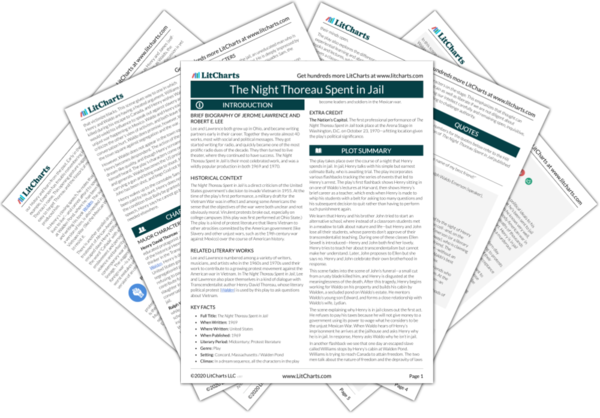The play is decidedly anti-war, and promotes a generally pacifist message throughout. The play emphasizes what it sees as the senselessness of soldiers’ deaths. When Henry’s brother John dies from an infection after nicking his finger with a rusty blade, Henry is disgusted by the absurdity of such a death, and wonders how God could possibly let a good man die for such a silly reason. Later, Henry dreams in jail of fighting in the Mexican War. During the dream, John is shot—and Henry begs John not to die—“not again.” There is a suggestion in these “two deaths” of John’s that his wartime death is just as senseless and absurd and meaningless as John’s original death.
The play itself engages in a kind of activism by demonstrating the uselessness of war during a time when a huge amount of America’s resources were tied up in the particularly expensive (in terms of both capital and human lives) Vietnam War. The play asks its audience what, exactly, are those sacrifices in the name of? In doing so it joined a chorus of protest artists asking similar anti-war questions at the time.
War ThemeTracker

War Quotes in The Night Thoreau Spent in Jail
I refuse to commit murder. That’s why I’m here.
You might try getting yourself born in a more just and generous age.
I gotta git to Cañada!
Always do the right thing, even if it’s wrong.
Seems to me I’ve got several more lives to live.











